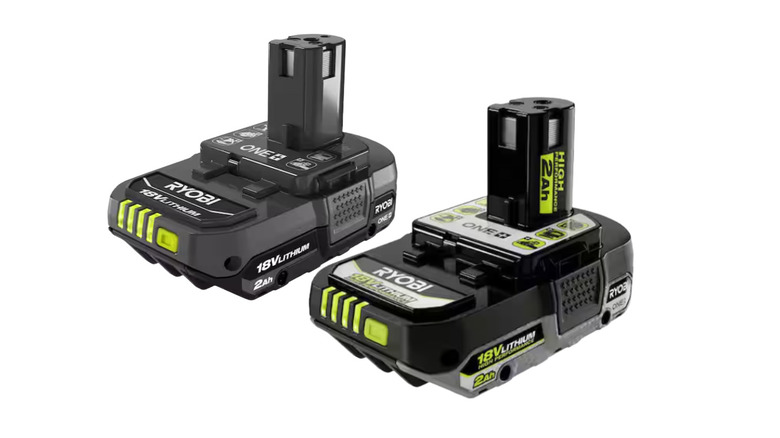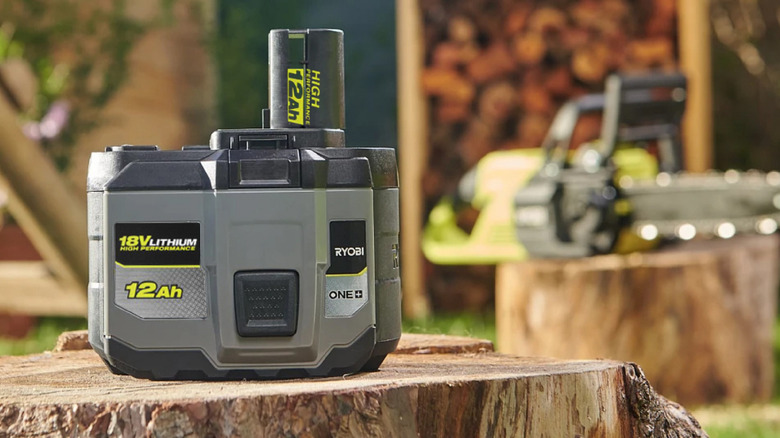Compact Vs High Performance Ryobi ONE+ Batteries: What's The Difference?
We may receive a commission on purchases made from links.
Selecting the right Ryobi power tool for the job is important. But so is choosing the right battery. When comparing compact to high performance, it's worth noting that the former isn't an actual line of Ryobi batteries. It's really just a way for Home Depot, which has 5 of the best Black Friday tool deals, to mention the battery's size versus other Ryobi batteries as part of the product listing. So "compact" usually means smaller and easier to handle. For example, differences like amp hours (Ah) aren't specific to compact batteries. Within Ryobi's range of 1.5 to 12.0Ah, some batteries are compact, and others are High Performance (HP).
For Ryobi batteries specifically marked HP, runtime and power are the big differentiators. That's because HP has more advanced internal cell chemistry and thermal management than other Ryobi batteries. This means that HP batteries are less likely to overheat, which is a common problem with Ryobi batteries. HP batteries also hold up better under heavier workloads and longer workdays, even in extreme temperatures. HP proves to be the more durable Ryobi battery over time.
But HP batteries are often heavier, and they do take longer to charge than batteries described as compact. They can also be more expensive, depending on what you buy. For example, an HP 18V 3-pack of batteries with assorted amp hours (Ah) at Home Depot is $99.33 per battery. But the One+ 18V 2.0Ah 2-pack is $49.50 for each battery.
Proper handling of your Ryobi batteries
All of today's Ryobi batteries are part of the brand's One+ system, which includes Ryobi One+ HP. This means that all batteries are compatible across Ryobi's line of over 300 tools. So if you're working on an important job and your battery goes dead, you can pop one in from another tool and keep working. However, you can only use batteries that correspond with the tools' voltage capacity, as Ryobi batteries aren't interchangeable.
You should also be sure that you're handling the batteries correctly. You should keep them from getting wet, and clean them with a dry cloth when they need it. Don't allow your Ryobi batteries to come into contact with metal, as it might cause a short-circuit. This could result in a fire or even an explosion. Though you could store them in a toolbox with the proper precautions, it's best to keep them in a separate case.
Also, if you're storing your batteries between uses, be sure they've got a charge. However, don't charge them fully and don't store them with no charge at all. If you do, you might be replacing them long before you expected to. The best move is to keep an eye on them, and if the charge drops too low, you can recharge just a bit before storing them again. Taking care of your Ryobi batteries means they should last longer and perform as designed for every job.

